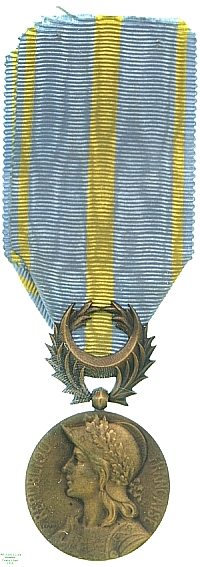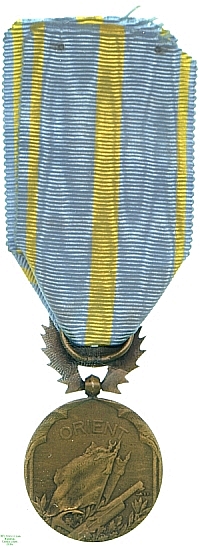Médaille d'Orient, 1926 (Great War)
After the failure of the Allies in the Great War of 1914-18 to take control of the Straits of Marmora in the disastrous Gallipolli campaign, French troops in the theatre were withdrawn to Thessalonika to form a new Armée d'Orient facing Austro-Hungarian inroads into Serbia.
The campaign they fought there was nearly as hard as that they had left, and conditions similarly difficult. The French troops, sometimes aided by British divisions, were unable to prevent the Serbian army being effectively demolished by the Central Powers, and only in September 1918 was Austro-Hungarian control of the Balkans substantively challenged.
A medal for service in the Dardanelles and in the subsequent Balkan campaigns was first suggested in 1917 but rejected, and only after other medals had been issued for the main theatres of war was its creation finally approved, in 1926.
This medal was issued unnamed, and its recipient is therefore unknown. Whoever it was must have been unfortunately impoverished, as Lester Watson purchased the medal from the London dealers Baldwin in 1927, less than a year after its issue.

